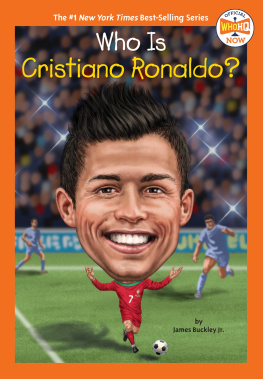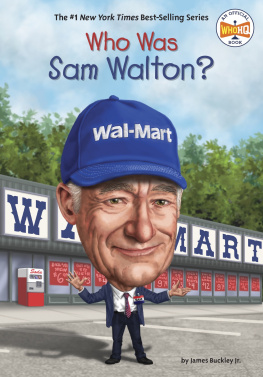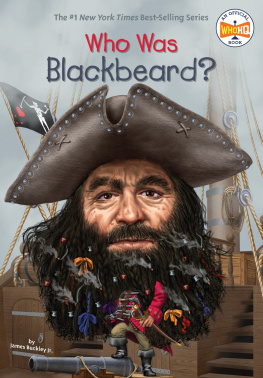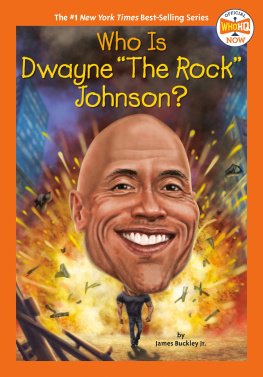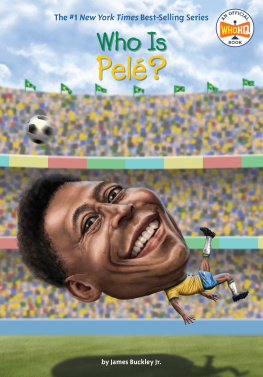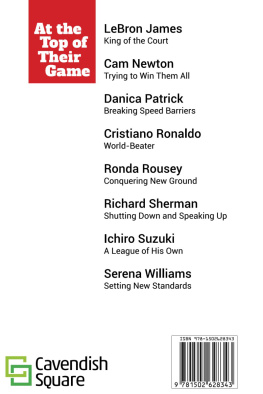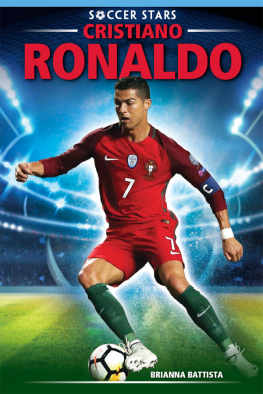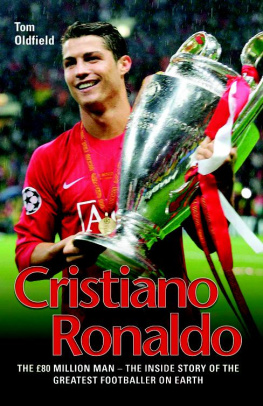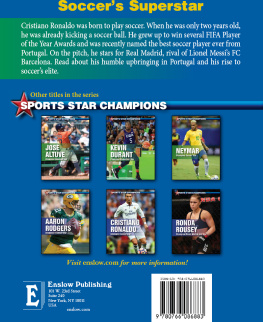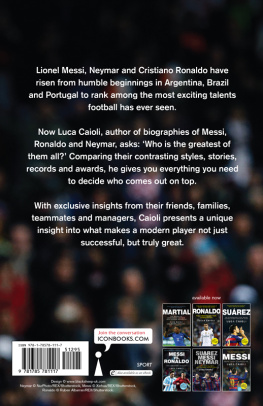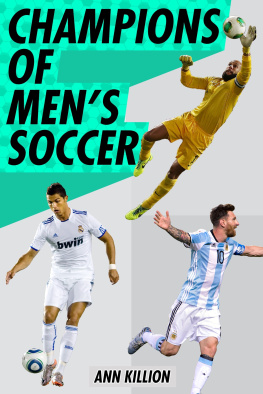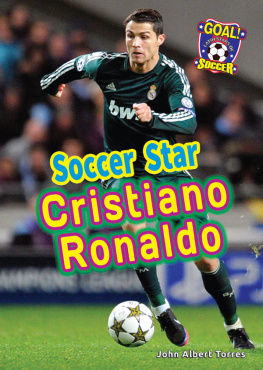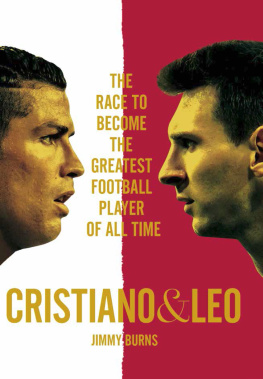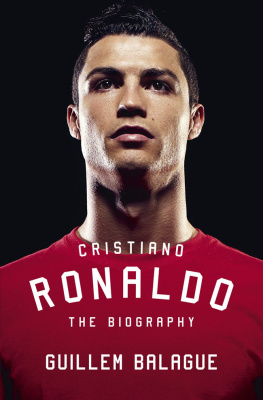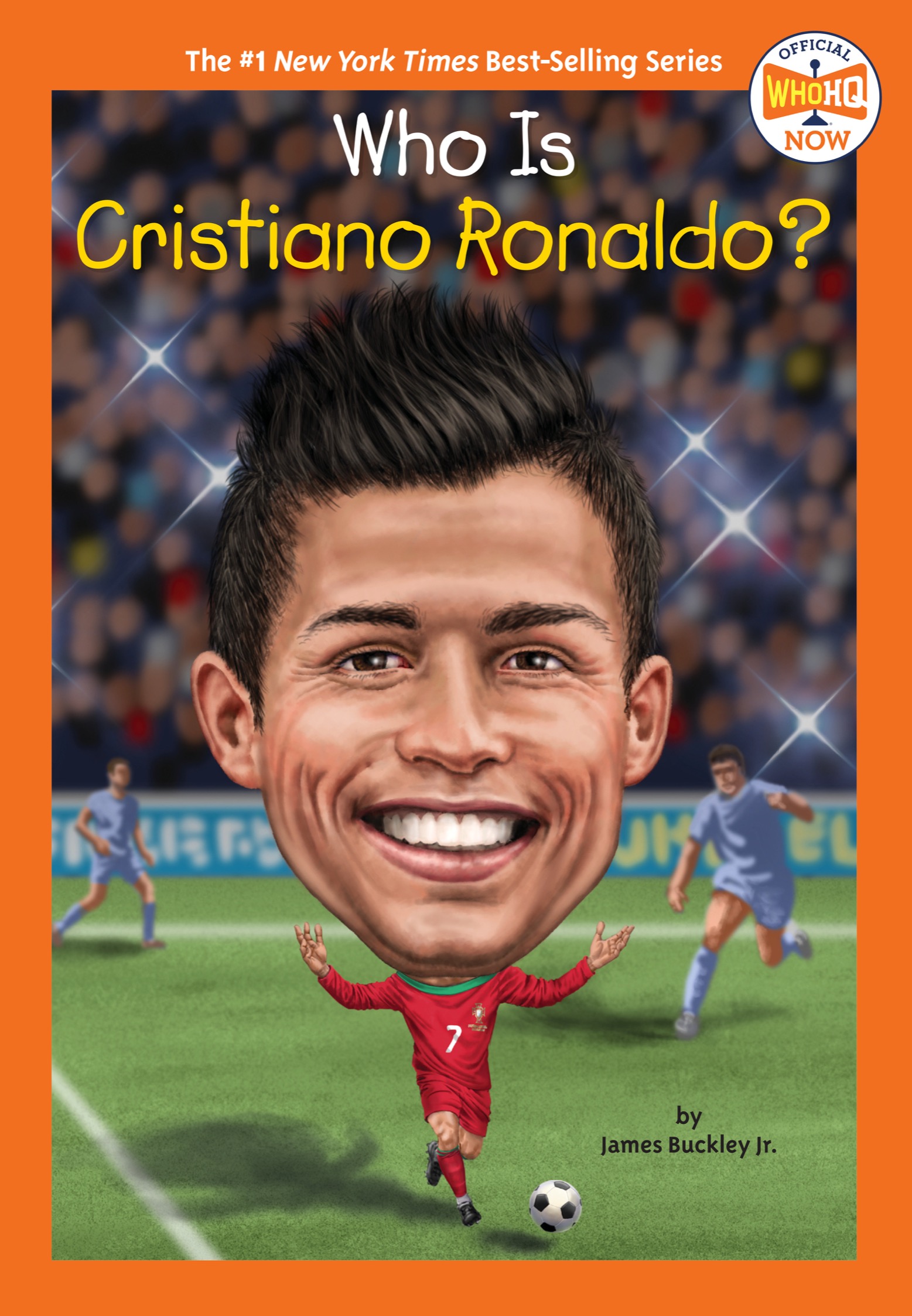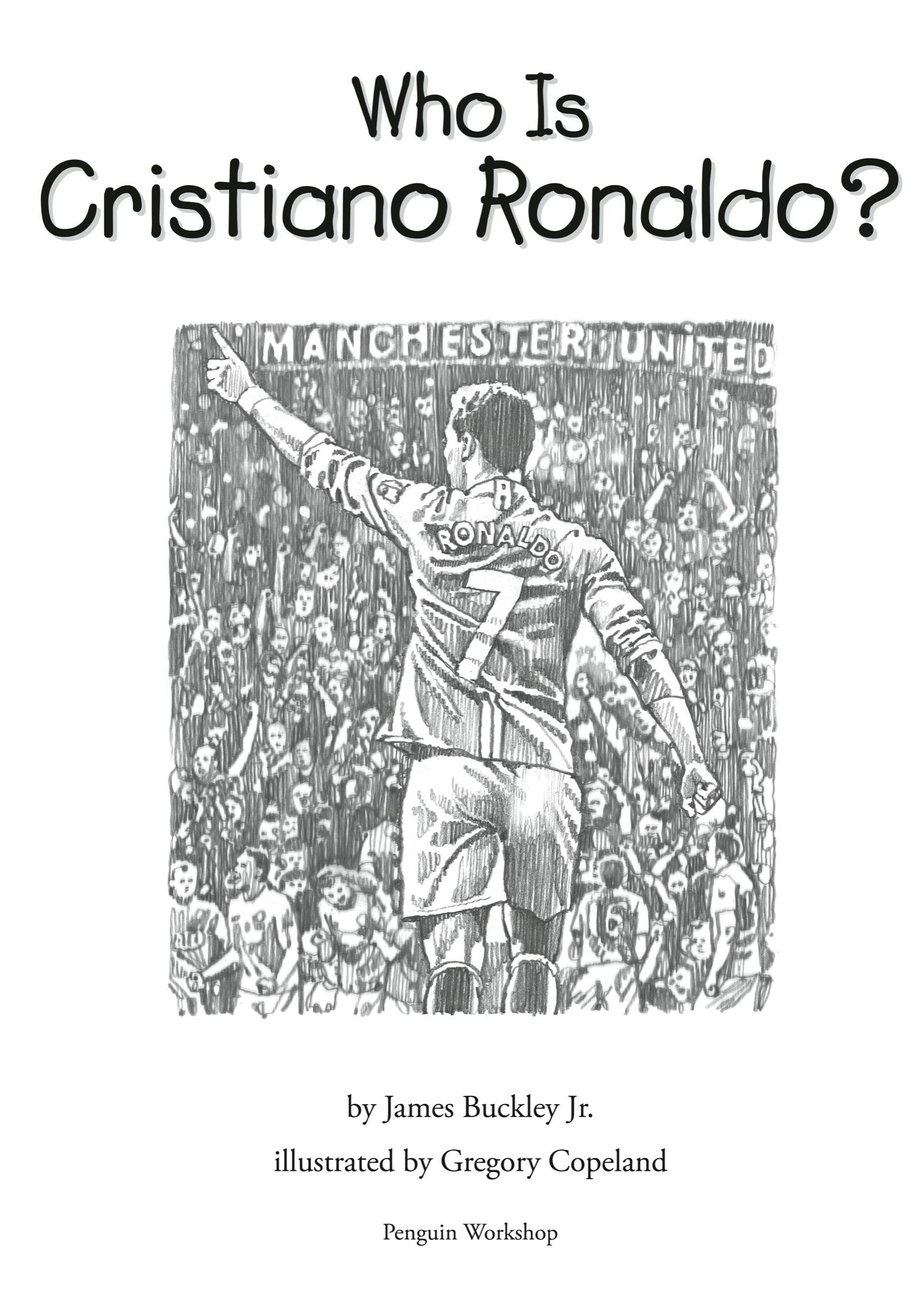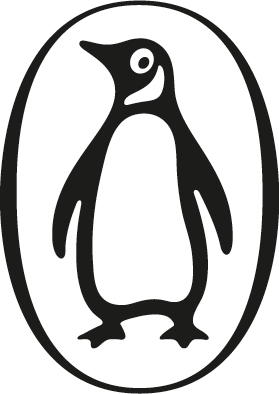Penguin supports copyright. Copyright fuels creativity, encourages diverse voices, promotes free speech, and creates a vibrant culture. Thank you for buying an authorized edition of this book and for complying with copyright laws by not reproducing, scanning, or distributing any part of it in any form without permission. You are supporting writers and allowing Penguin to continue to publish books for every reader.
The publisher does not have any control over and does not assume any responsibility for author or third-party websites or their content.
Copyright 2022 by Penguin Random House LLC. All rights reserved.
Published by Penguin Workshop, an imprint of Penguin Random House LLC, New York. PENGUIN and PENGUIN WORKSHOP are trademarks of Penguin Books Ltd. WHO HQ & Design is a registered trademark of Penguin Random House LLC.
Visit us online at www.penguinrandomhouse.com.
Library of Congress Cataloging-in-Publication Data is available upon request.
Who Is Cristiano Ronaldo?
The worlds greatest soccer player was crying. He was not sad. He was shedding tears of joy.At a star-studded ceremony, Cristiano Ronaldo had just won the 2013 Ballon dOr (French for Golden Ball), a trophy given to the years top player. He had won the award before, in 2008, but it had been five long years since he had taken home this important honor. This time, he did not come onto the stage alone. His three-year-old son, Cristiano Jr., had scampered up to follow his dad.
Tears flowed as Cristiano spoke in Portuguese, his native language. He thanked his mother, Dolores, and his family. He thanked his teammates and coaches. And for the first time on any stage, he tearfully thanked his son for being in his life.
For soccer fans, seeing Cristiano Ronaldo cry was not that unusual. For a decade, he had been part of some of the greatest teams and championships in world soccer, first for Sporting Lisbon in Portugal, then for Manchester United in England. Since 2009, he had been with Real (say: ray-AHL) Madrid in Spain. He had helped his teams take home trophies that brought tears of joy. He had also wept in disappointment when he could not help his national team from Portugal do the same.
Why all the tears for a game? For billions of people around the world, soccer is much more than a game. For Cristiano Ronaldo, too, it is an obsession. From almost as soon as he could walk, he had a burning desire to be the best in the game. It took a lot of hard work, a lot of talent, and a bit of luck, but now, on this stage in Switzerland, he could say that he had made it.
On the awards show stage, Cristiano stood proudly with his son by his side. They were like an island amid a sea of cheering fans. His story, however, begins on another island entirely.
CHAPTER 1
Island Kid Turns Pro
The island of Madeira is in the Atlantic Ocean, about 620 miles from the coast of Portugal. Madeira is a region of Portugal. Cristiano Ronaldo dos Santos Aveiro was born on Madeira on February 5, 1985. His mother, Dolores dos Santos, chose the name Cristiano. His father, Jos Dinis, chose Ronaldo, after Ronald Reagan, the American president at the time, and a man Jos Dinis admired. For most of his life, Cristiano has been known just by his first two names, which is not unusual for people from Portugal.
Cristiano was the youngest of four children. The family lived in a three-room house with a tin roof in a poor part of the islands biggest city, Funchal. Soccer was a huge part of Cristianos life from when he was very young. Jos Dinis worked as the equipment manager for a local soccer club called Andorinha (Portuguese for the Swallows). He took care of the uniforms, known as the kit, the balls, and even the grass on the teams fields.
Once Cristiano finally got his own ball, it almost never left him. He slept with his ball, it never left his side. It was always under his armwherever he went, it went with him, remembered his godfather, Fernando Sousa. Once when Cristiano brought the ball to school with him, a teacher told him he was making a mistake. She told him that the ball would never feed him; he had to put it aside and learn his lessons.
He played most often in the street, because their neighborhood had no fields. He and his friends would form goals with rocks or rags, and they had to move out of the way quickly when cars came by. From the first time he touched the ball, Cristiano was something special. He could dribble past anyone. He made moves that only older players would try. Cristiano followed his father to work sometimes and tried to play with the older kids on the junior team. By the time the young player was nine years old, he had joined Andorinha.
As great as he was at soccer, Cristiano was still very young. He cried oftenwhen he missed a goal, when his team lost, when the ball wasnt passed to him. In fact, one of his nicknames on the team was Crybaby.
His teammates gave him another nickname: Abelhinha, which means little bee in Portuguese. They saw him zipping around like a buzzing insect as he played.
Jos Dinis often came to watch Cristianos games. Dolores watched, too, but she later said she was too nervous. She did not want to see her son get hurt!
Cristianos skills were now being noticed by other teams. A larger youth club called Nacional wanted him to join. In 1995, Andorinha was given twenty soccer balls and two sets of team uniforms to release Cristiano so he could join the other team.
He was not with Nacional very long. When he was twelve, a pro soccer club called Sporting Lisbon, in the capital of Portugal, asked him to try out. They had heard stories of this amazing island player who was tall and skinny, fast and dedicated. Top pro teams in Europe often have youth academies. They pay for young players to live and train together. The hope is that many will grow up to play for the clubs top teams.
At only twelve years old, Cristiano would have to leave his island home for the first time and live across the water in the city of Lisbon, far from his family.
Cristiano didnt think twice. It was a chance to keep playing the game he loved. In August 1997, he flew to Lisbon to begin his pro career.
With Sporting, Cristiano soon showed he was one of the best players. The same soccer skills he had learned in Funchals streets quickly made him a star on the Lisbon pitch, as soccer fields are often called. Life off the field was harder, however. Cristiano was very homesick and cried almost every night. He had to take care of himself, living in a dorm with other young players. On one of many tearful phone calls back home, he complained to his mother that he had to do his own ironing! Once he spent all his lunch money on chocolate and had to write home for more.

